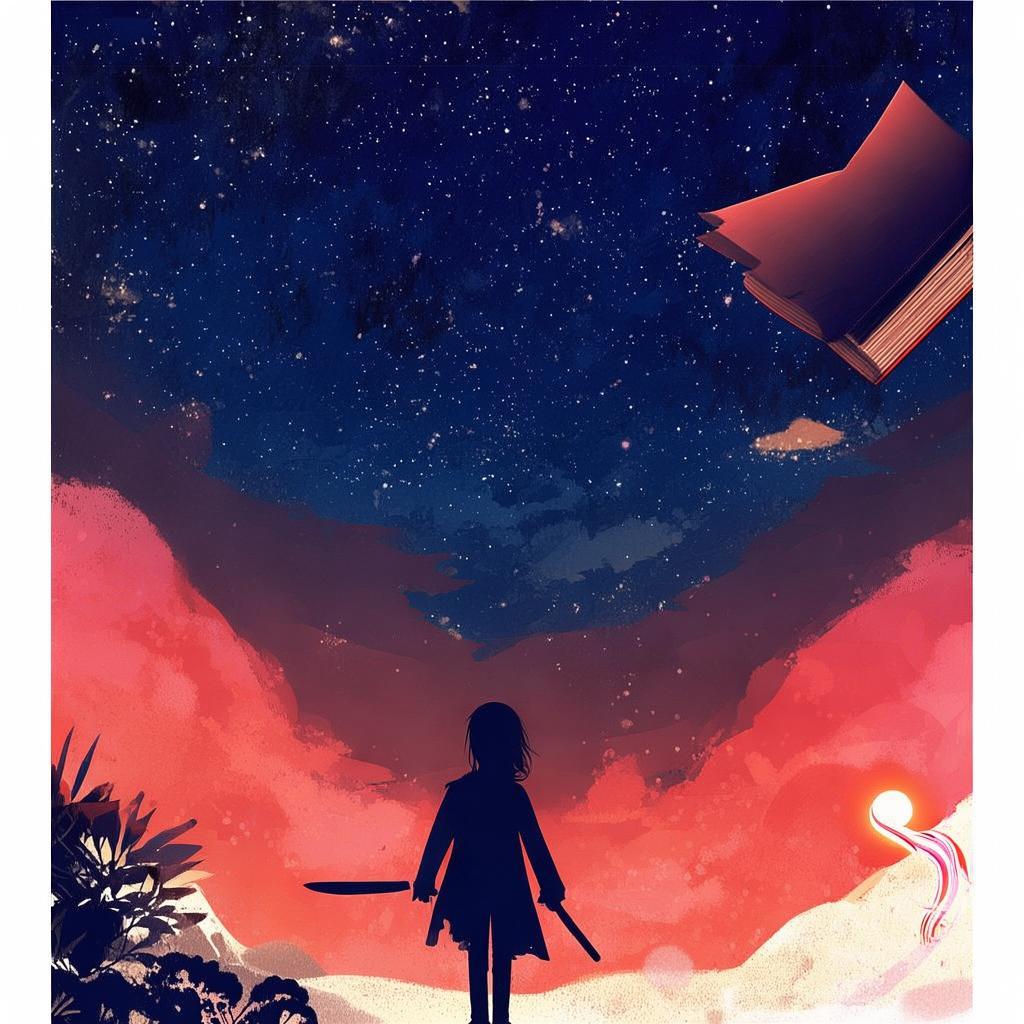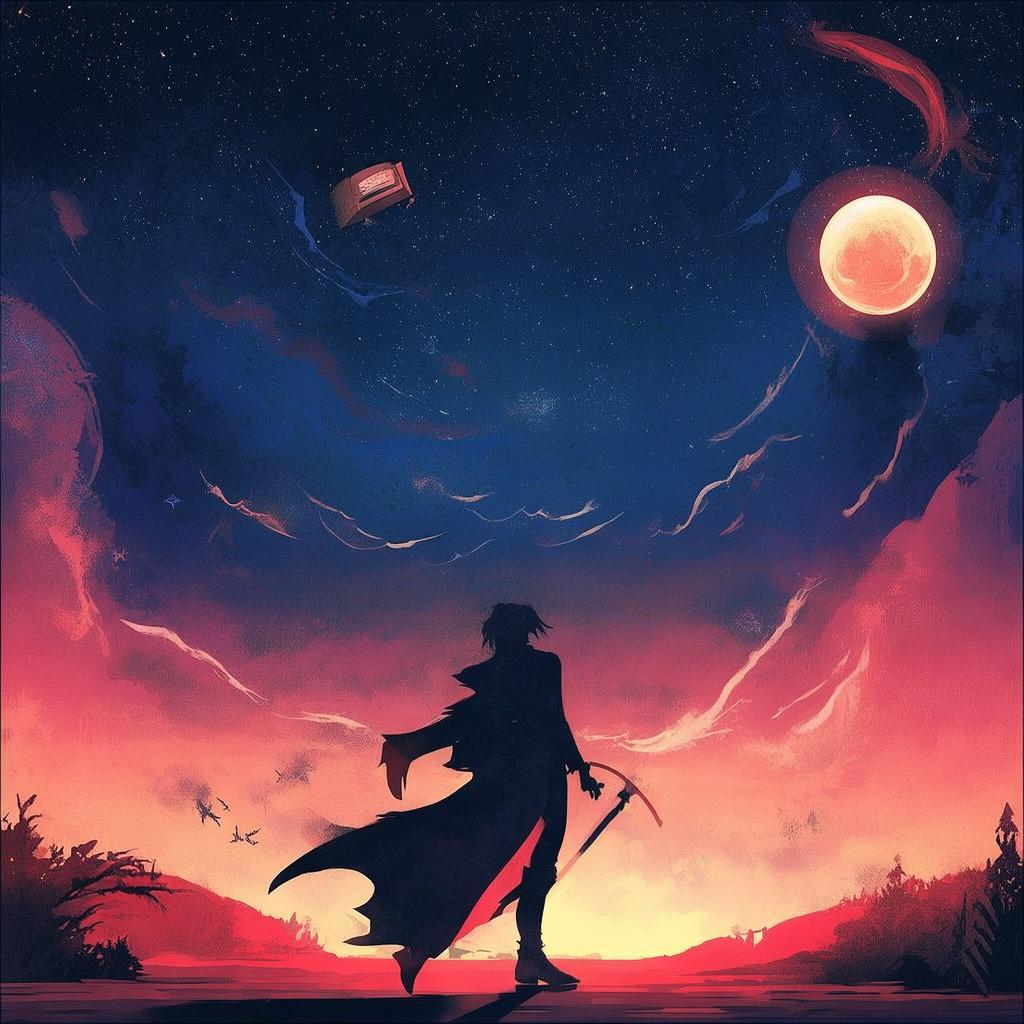The Unseen Symphony of Kwaito
In the heart of Johannesburg, where the echoes of Kwaito music bounce off the concrete walls, a young girl named Nkuli found her calling. She was the daughter of a street artist, her father's brush strokes a testament to the vibrancy of their neighborhood. As a child, Nkuli watched in awe as her father painted murals that seemed to breathe life into the desolate alleyways. But as she grew older, she realized that her heart was set on a different kind of canvas.
One afternoon, while her father was away on a gig, Nkuli discovered a hidden studio in the basement of their rundown apartment. It was filled with tapestries of Kwaito, a music genre that was the heartbeat of the streets. The sound of Kwaito was like a symphony to her ears, and she found herself drawn to the rhythm and the lyrics that seemed to speak directly to her soul.
She spent days and nights in that studio, listening to the music, dancing, and painting. Her father's influence was evident in her work, but there was a rawness to her art that was uniquely her own. She began to see the world through her art, each stroke of her brush telling a story of the streets, the people, and the music that defined her life.
One evening, as she was finishing a particularly bold piece, the door to the studio creaked open. It was her father, returning from his gig. He stood in the doorway, his eyes wide with a mix of surprise and pride.

"Nkuli, what have you done?" he asked, his voice barely above a whisper.
Nkuli turned to face him, her heart pounding. "I painted this," she said, gesturing to the mural that now adorned the wall. "It's Kwaito, it's our life, it's you."
Her father approached the mural, his eyes tracing the vibrant colors and intricate designs. "You've captured the essence of Kwaito," he said, his voice filled with emotion. "But what does it mean to you?"
Nkuli took a deep breath. "It's my voice. It's my story. It's who I am."
Her father nodded, a knowing smile playing on his lips. "Then you must take it out into the world, daughter. Let your art speak for you."
The following days were a whirlwind of activity. Nkuli's art began to gain attention, both from the local community and from the underground hip-hop scene. She found herself in the company of young artists and musicians, all of whom shared her passion for Kwaito and hip-hop.
One night, as she was leaving a small, crowded bar where she had performed, a group of young men approached her. They were rough and intimidating, their eyes scanning her like predators looking for prey.
"Your art is good, girl," one of them said, his voice dripping with menace. "But it's not for everyone."
Nkuli stood her ground, her heart pounding in her chest. "I know the streets, I know the culture. I know what I'm doing."
The man's smile widened. "We'll see about that."
Just then, the sound of Kwaito music blared from the bar, a signal for the night's main event. The group of young men, along with Nkuli, moved to the center of the dance floor. The music was powerful, the beat a rhythm that could not be ignored. Nkuli's movements were fluid, her dance a reflection of the music, her art now a part of her body.
As the night wore on, the tension between Nkuli and the group of young men seemed to dissipate. The music was a bridge, a common ground that brought them together. Nkuli realized that her art was not just a reflection of her life, but a bridge to others' lives as well.
The next morning, as the sun rose over Johannesburg, Nkuli stood on the rooftop of her building, watching the city come to life. She took a deep breath, feeling the weight of her dreams on her shoulders. She had found her voice, and it was a voice that could not be ignored.
The streets of Johannesburg were alive with Kwaito, and Nkuli was part of that life. She had found her place, her identity, in the music and the art that defined her. And as she stood there, watching the city wake up, she knew that her journey had just begun.
The Unseen Symphony of Kwaito was a story of discovery, of finding one's voice, and of the power of art to bring people together. It was a story that resonated with the streets of Johannesburg, a testament to the resilience and spirit of a city that never stopped dreaming.
✨ Original Statement ✨
All articles published on this website (including but not limited to text, images, videos, and other content) are original or authorized for reposting and are protected by relevant laws. Without the explicit written permission of this website, no individual or organization may copy, modify, repost, or use the content for commercial purposes.
If you need to quote or cooperate, please contact this site for authorization. We reserve the right to pursue legal responsibility for any unauthorized use.
Hereby declared.









